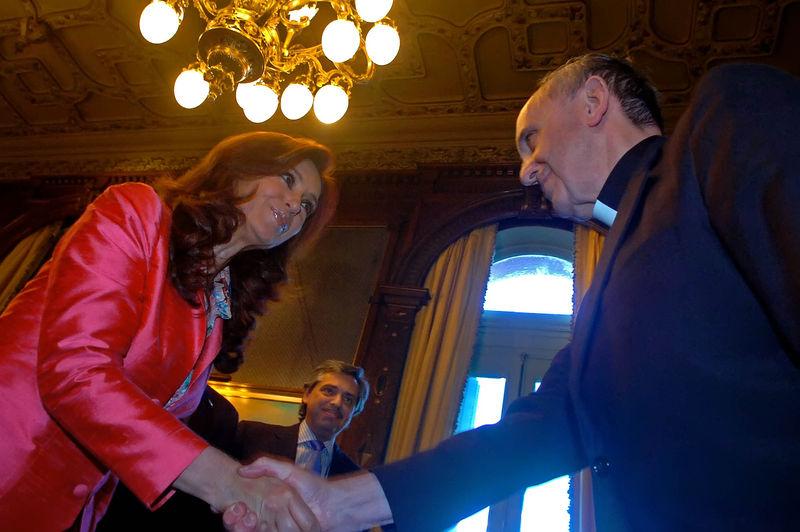
Cardinal Jorge Bergoglio is the first Jesuit to ever be chosen Pope. The Argentine joined the Society of Jesus in 1958 and eventually became leader of all Jesuits in Argentina.
WNYC's Jim O'Grady authored a book about Jesuit Daniel Berrigan and his brother Philip, a Josephite priest. He says some people view Jesuits as the "liberal Catholics" — the educators, scholars and social activists - especially in Latin America. O'Grady says while it's clear that Francis is doctrinally conservative, he's still a product of the Jesuit order.
Francis lead the Jesuits in Argentina from 1973 to 1979, a period during which the order was essentially feuding with the Vatican. The pope at the time, Paul VI, accused the Jesuits of “loose discipline.” He thought the superior general of the Jesuits, Fr. Pedro Arrupe, should have been cracking down on his priests in Latin America who were practicing liberation theology, a doctrine that supports the poor in fighting political and economic oppression.
Arrupe wouldn't do it to the pope's satisfaction, and the fight went on for some time. There was a dramatic scene in 1983 when Pope John Paul II visited Nicaragua and liberation theologian Ernesto Cardenal greeted him on the tarmac by kneeling down before him and the pope wagged a finger in his face and rebuked him.
Bergoglio would've followed the conflict closely, and seems to have split the difference between the two sides. He criticized liberation theology for its Marxist roots but embraced its ethic of "a preferential option for the poor." As archbishop of Buenos Aires, he raised awareness of poverty and spoke about justice for the poor.
The Jesuits have a long and colorful history of involvement in politics. In the 17th century, the British Crown accused the order of being behind The Gunpowder Plot, an attempt to blow up Parliament. The accusation was probably untrue. In the 18th century, Pope Benedict XIV suppressed the Jesuits in parts of Europe for meddling in politics. The pope's motivations were Byzantine, but the idea of Jesuits influencing European seats of power is not so far-fetched.
The Jesuit order started out in 16th century Italy as wandering holy men. They lived like Francis of Assisi, who may have inspired Pope Francis in his choice of name. But then the Jesuits got organized and, over time, became the largest order of priests in the Catholic Church.
They grew into the church's intellectual elites, and traveled widely as missionaries, especially in Asia. Jesuit priests proved adept at adapting to local customs, learning the language and installing themselves as advisers in the local power structure. At the same time, they absorbed new ideas and different ways of looking at the world. This often made them more cosmopolitan than your average archbishop. And that sometimes made them suspect in the eyes of Rome.
The Jesuits have also influenced the Church and been a force for change. An example is the American Jesuit John Courtney Murray, who was born in New York City in 1904. Back then, Catholics belonged to a church that called itself as "the one true faith", but they lived in a country that had freedom of religion and didn't privilege one faith above another.
Courtney Murray was a thinker who reconciled those tensions. He said American Catholics could embrace religious pluralism and participate fully in political life and still be good Catholics. The Vatican first opposed his ideas, but later agreed with them. That paved the way for developments like a Catholic President, John F. Kennedy, and to the Second Vatican Council in the early 1960s, which reformed church teaching and more or less dragged the church into the modern world.
Pope Francis has been a Jesuit for more than 40 years. So Jesuit history is his history, too. We'll see what he does with it.
You can listen to the full interview above.
